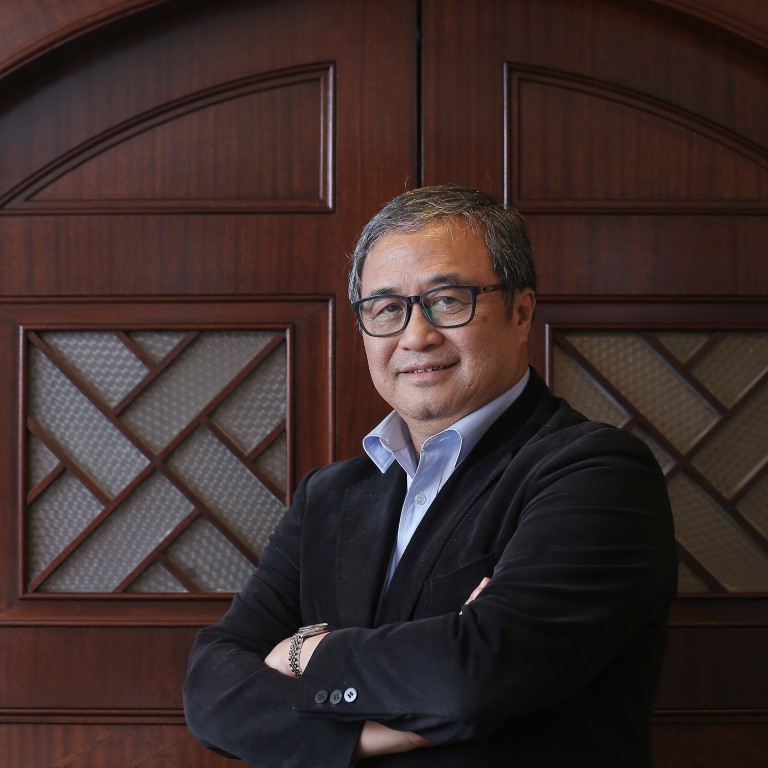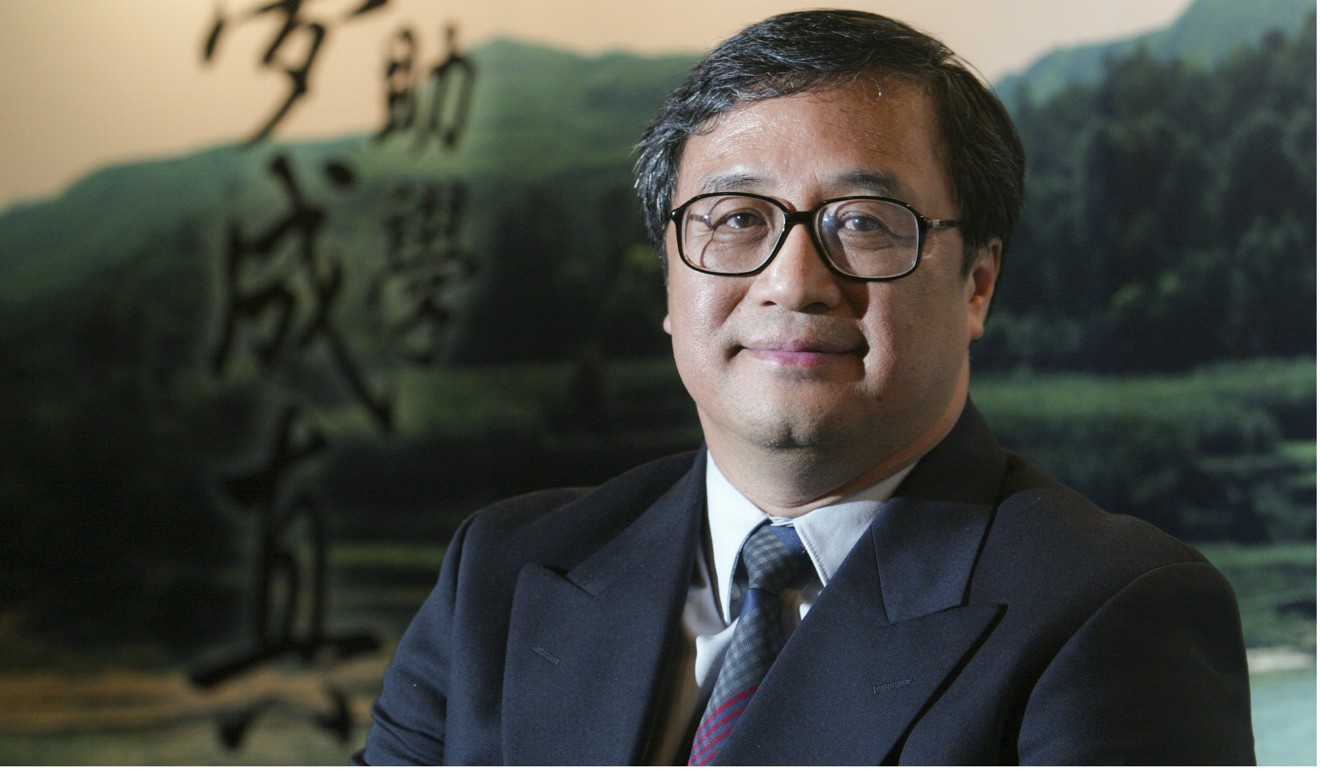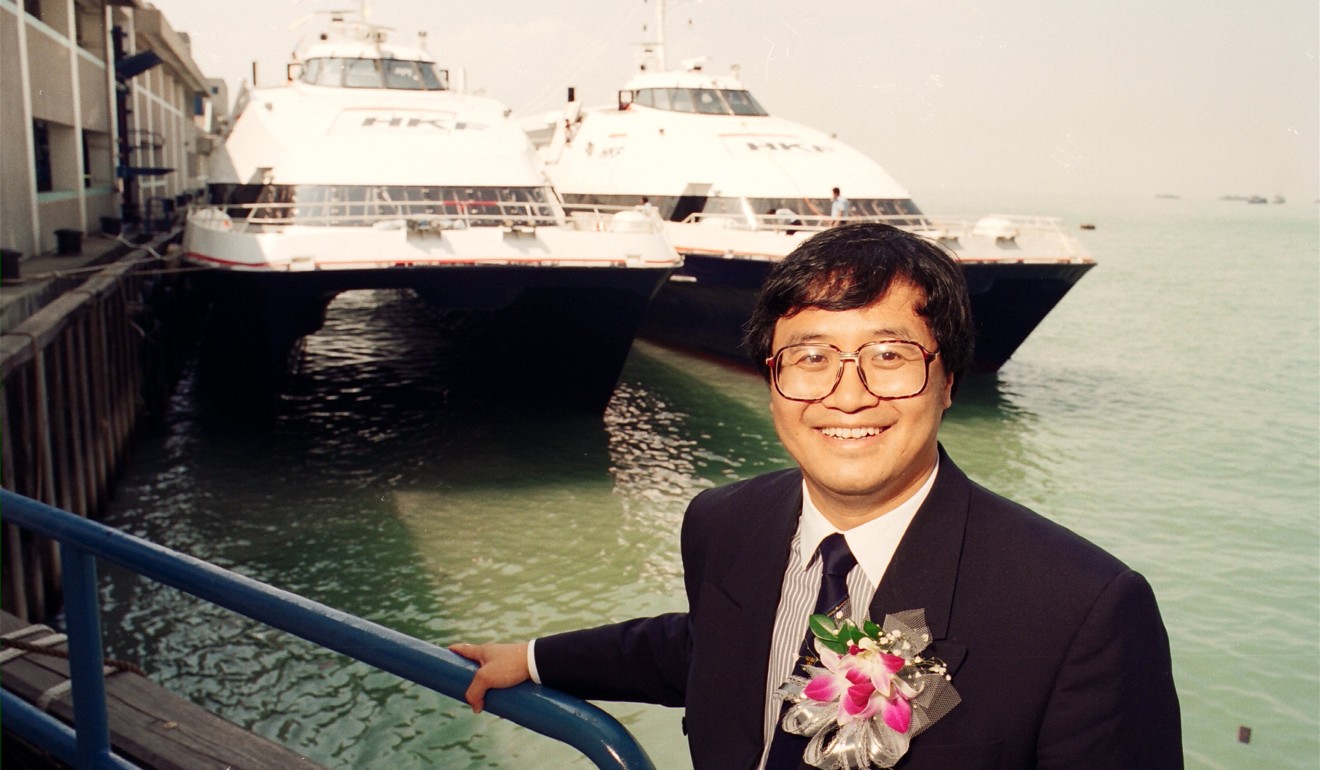
Veteran Hong Kong deputy to National People’s Congress Peter Wong Man-kong dies at age 70
- Wong died at 6pm on Monday in Hong Kong, according to Wong Yuk-shan, deputy convenor of local NPC delegation
- Peter Wong had been taken ill in Beijing and flew back to Hong Kong on March 4
Wong, a local deputy to the NPC since 1993, was the eldest son of shipping magnate Wong Wah-sang and had extensive investments in mainland China.
In recent years, Wong had been active in calling for the Hong Kong government to enact national security legislation.

In a message issued at 10.30pm, Wong Yuk-shan, deputy convenor of Hong Kong’s NPC delegation, said: “Mr Wong Man-kong passed away in Hong Kong at 6pm on Monday. Mr Wong loved his country and loved Hong Kong throughout his life. He did his utmost for Hong Kong and for the country, and made outstanding contributions to social and charitable work.”
Peter Wong died at Queen Mary Hospital in Pok Fu Lam.
The deputy convenor said Wong flew to Beijing to attend the annual session of the NPC on March 2, although he was already very weak.
“He felt unwell that night, and was sent to a Beijing hospital for treatment,” Wong Yuk-shan said, adding that Peter Wong flew back to Hong Kong for treatment on March 4 accompanied by his wife and daughter.
He said Wong, “a very strong and responsible guy”, had insisted on attending the meetings in Beijing.
In a statement, Chief Executive Carrie Lam Cheng Yuet-ngor said she was saddened by Wong’s death, and sent his family her condolences on behalf of the city government.
She described him as a “patriotic entrepreneur” actively invested in the mainland since the early days of economic reform, who helped promote the development of the country as well as Hong Kong businesses north of the border.
“He was enthusiastic in serving the community and contributed a lot to education, youth development and cultural exchanges in the mainland and Hong Kong,” she added.
Ma Fung-kwok, convenor of the local NPC delegation, said Wong had been feeling unwell for months, wearing a mask and thick clothing for public occasions.
“He was very competent and did lots of work for the country,” Ma said. “He stood firm on his principles and was vocal with his ideas.”
The delegation was considering observing a minute’s silence for Wong at Tuesday’s meetings.
Wong had more than four decades of experience in the business sector and was chairman of M K Corp, an investment group with subsidiaries specialising in organising tour groups and managing hotels on the mainland and along the ancient Silk Road trade route in northwestern China.

He also served as a director of Hong Kong Ferry (Holdings), where he had been president and CEO from 1992 to 1995. Wong also sat on the boards of a number of other listed companies in Hong Kong. Born in 1949, he was an engineering graduate of the University of California at Berkeley and a recipient of the Young Industrialist Award of Hong Kong. He was awarded the Bronze Bauhinia Star in 2003.
His father, who died in July 2018, was one of three Hong Kong shipping magnates in the 1970s, along with Tung Chao-yung and Pao Yue-kong. His brother Ronnie Wong Man-chiu, a former Olympic swimmer, is president of the Hong Kong Amateur Swimming Association.
In 2010, Wong petitioned the NPC for such legislation during the annual plenary session. He revived his call in 2014 after pro-independence activists broke into the People’s Liberation Army headquarters in Admiralty, carrying a colonial-era Hong Kong flag and calling on the PLA to get out of the city.
However, as recently as last month Wong said there was now no great urgency to enact Article 23 legislation as the government had already adopted the Societies Ordinance to deal with certain issues.
In 2017, Wong also proposed that the NPC Standing Committee, the country’s top legislative body, should launch a comprehensive review of the Basic Law to see which parts should be amended, especially the section on foreign judges.
Wong argued that as judges’ foreign nationality meant allegiance to another sovereignty, it was “not desirable” to hire more of them or let them hear constitutional cases. But critics slammed his idea, and warned it would destroy the “one country, two systems” principle under which Beijing governed Hong Kong.
In December 2017, Wong claimed the 36th and final place in the election to choose NPC delegates for Hong Kong from 49 candidates for the current term. Lawyer Nick Chan Hiu-fung of the Liberal Party came 37th. Under the rules, Chan would fill his place, subject to the NPC’s final approval.


